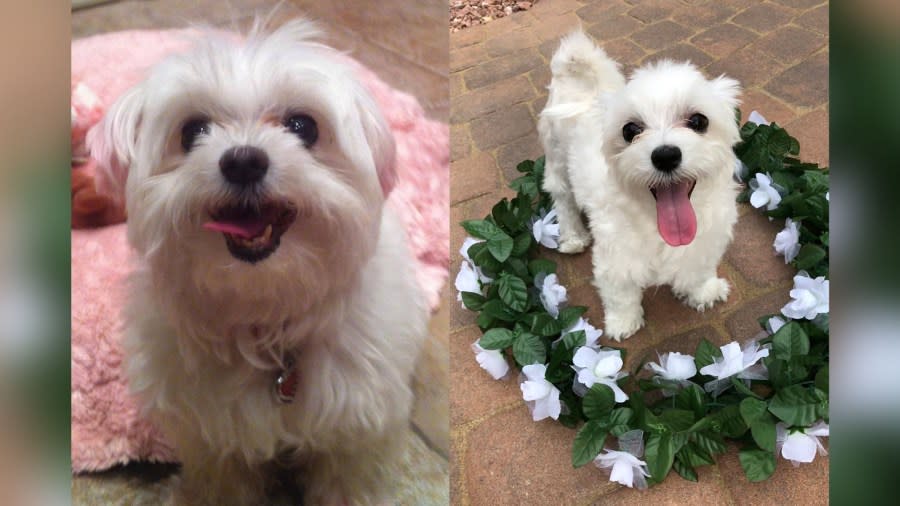Cloned dogs in Las Vegas: How furry friends are living forever

LAS VEGAS (KLAS) — Many pet owners would tell you they wish their furry friends could live forever, but only a few Las Vegans have taken steps to make it happen — kind of.
Manika Ward, 31, of Henderson, grew up with pets, as many as 40 in her life. One special buddy, however, captured her heart: a Maltese named Angel. From ten years old to adulthood, Angel and Ward went through a move to southern California and back to Las Vegas together. But as Angel began to age, Ward began looking for options, finding one in ViaGen Pets & Equine.
There, the company had fairly recently begun the process of cloning on demand for pet owners, having spent the last 20 or more years duplicating livestock. Melain Rodriguez, the company’s Client Services Manager, said the livestock cloning business was “basically printing money.”
“We had one client clone a bull 25 times,” Rodriguez said.
In 2015, ViaGen Pets & Equine started cloning dogs and cats. The first step involves preserving the biological information of a pet. Ward didn’t hesitate, capitalizing on Angel’s appointment for a teeth cleaning and already under anesthesia to get the samples.
Those samples were then sent to the company’s lab in Texas, where millions of cells were grown from them before they were “cryo-preserved” or frozen and stored until the client was prepared to proceed with the cloning.
For Ward, that moment came a few months after Angel passed away.
According to Rodriguez, the next steps involve taking those cryo-preserved cells and replacing the cells from a donor dog’s egg with the preserved DNA. Then, the egg is placed into a surrogate mom who cares for the puppy. She says the process is quite similar to human in vitro fertilization.
The process comes with consistent updates, Ward said, and she’s not the only one who has cloned a beloved pet in the Las Vegas valley. One Henderson man went through the process of cloning his beagle-cocker spaniel mix, Bullet. At age 13, Bullet spawned several clones, three of which the man kept before adopting the remaining. According to him, each of the clones looks identical and has very similar personalities.
Ward agreed, saying that Angel’s clone, named Gel-E, retained many of the former’s quirks.
“I’ve never had such an immediate strong connection with a pet that I have with Gel-E,” Ward said.

As much resemblance as Angel and Gel-E have, Rodriguez said not all clones are identical. Over the last 15 years of observing the process, however, she observed that much of a pet’s personality and intelligence is embedded in its DNA. Still, at this point, it is just not possible to isolate and eliminate health issues from a cloned pet.
“We’re not able to genetically manipulate things right now,” Rodriguez said. “For things like cancer or heart disease, if there is a genetic illness in the animal, the cloned animal may not be born with that illness or disease.”
However, Rodriguez said each pet will have the same potential to develop those illnesses later in life.
Cloning a loved pet isn’t cheap. Genetic preservation costs $1,600, and the sample must be stored for $150 annually. Some people, officials say, wait as many as 20 years to clone their pet. Once the pet owner deems it time, the cost to clone a dog or a cat is $50,000. For a horse, it’ll run $85,000. ViaGen Pets & Equine expects the cost to come down as time goes on.
Copyright 2024 Nexstar Media, Inc. All rights reserved. This material may not be published, broadcast, rewritten, or redistributed.
For the latest news, weather, sports, and streaming video, head to KLAS.

